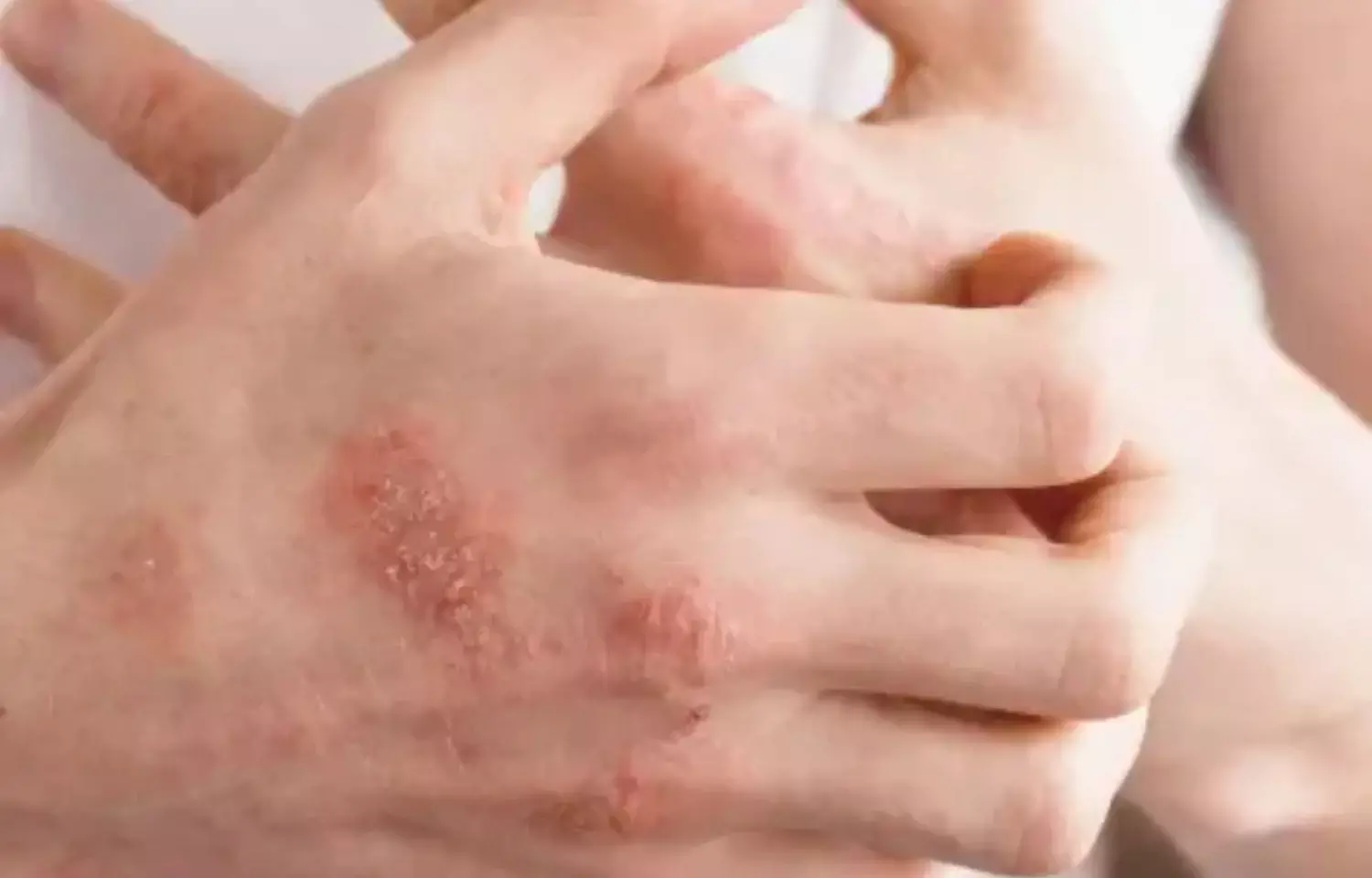- Home
- Medical news & Guidelines
- Anesthesiology
- Cardiology and CTVS
- Critical Care
- Dentistry
- Dermatology
- Diabetes and Endocrinology
- ENT
- Gastroenterology
- Medicine
- Nephrology
- Neurology
- Obstretics-Gynaecology
- Oncology
- Ophthalmology
- Orthopaedics
- Pediatrics-Neonatology
- Psychiatry
- Pulmonology
- Radiology
- Surgery
- Urology
- Laboratory Medicine
- Diet
- Nursing
- Paramedical
- Physiotherapy
- Health news
- Fact Check
- Bone Health Fact Check
- Brain Health Fact Check
- Cancer Related Fact Check
- Child Care Fact Check
- Dental and oral health fact check
- Diabetes and metabolic health fact check
- Diet and Nutrition Fact Check
- Eye and ENT Care Fact Check
- Fitness fact check
- Gut health fact check
- Heart health fact check
- Kidney health fact check
- Medical education fact check
- Men's health fact check
- Respiratory fact check
- Skin and hair care fact check
- Vaccine and Immunization fact check
- Women's health fact check
- AYUSH
- State News
- Andaman and Nicobar Islands
- Andhra Pradesh
- Arunachal Pradesh
- Assam
- Bihar
- Chandigarh
- Chattisgarh
- Dadra and Nagar Haveli
- Daman and Diu
- Delhi
- Goa
- Gujarat
- Haryana
- Himachal Pradesh
- Jammu & Kashmir
- Jharkhand
- Karnataka
- Kerala
- Ladakh
- Lakshadweep
- Madhya Pradesh
- Maharashtra
- Manipur
- Meghalaya
- Mizoram
- Nagaland
- Odisha
- Puducherry
- Punjab
- Rajasthan
- Sikkim
- Tamil Nadu
- Telangana
- Tripura
- Uttar Pradesh
- Uttrakhand
- West Bengal
- Medical Education
- Industry
Domestic hard water increases eczema prevalence in adults: Study

Australia: Increasing levels of domestic hard water are associated with an increased prevalence of eczema in adults, states an article published in the British Journal of Dermatology.
Some evidence suggests that hard water may damage the skin barrier and lead to the development of eczema. Eczema is a chronic inflammatory skin disease, presented by inflamed, irritated, and itchy skin. Hard water might also worsen symptoms of eczema in people who already have the condition. Domestic water with high mineral content (hard water) is a risk factor for eczema in children, but this association has not been assessed in adults until now.
Diego J., the University of Melbourne, Australia, and his team conducted a study to examine the association between domestic hard water supply and eczema prevalence and incidence in middle-aged adults and the contextual effect on eczema outcomes in adults.
Researchers included 306,531 participants with a mean age of 57 years in the baseline analysis and 31,036 participants for the follow-up analysis. Eczema prevalence at baseline, at follow-up, and incidence (new onset between baseline and follow-up), were determined from the touchscreen questionnaires and nurse-led interviews. Domestic hard water information was obtained from the local water supply companies as calcium carbonate (CaCO3) concentrations. Multilevel logistic regression models with random intercepts were fitted to examine the effect of domestic hard water on eczema outcomes. Researchers also measured the components of variance.
Key findings of the study,
• There was an increase in the odds of eczema at baseline (OR: 1.02) per 50 mg/L of CaCO3 increase.
• Exposure to domestic hard water (>200 mg/L of CaCO3) was associated with increased odds of prevalent eczema at baseline (OR: 1.12).
• There was a significant linear trend in which increasing levels of hard water increased eczema prevalence risk.
• No association was observed with the incident eczema or eczema at follow-up.
• The intraclass correlation coefficient was 1.6% and remained unexplained by area-level socioeconomic measures.
The authors conclude that increasing levels of domestic hard water, as measured by CaCO3 concentrations, are associated with an increased prevalence of eczema in adults but not with increased incidence of the same. Ongoing efforts to reduce hard water exposure may have a beneficial effect in reducing the burden of eczema in adults.
Further research is needed to explore area-level factors that may lead to eczema, the authors suggested
Reference:
Diego J. Lopez,Ankur Singh,Nilakshi T. Waidyatillake,Dinh S. Bui,Shyamali Dharmage,Caroline J. Lodge,Adrian J. Lowe. First published: 13 July 2022. https://doi.org/10.1111/bjd.21771
BDS
Dr. Hiral patel (BDS) has completed BDS from Gujarat University, Baroda. She has worked in private dental steup for 8years and is currently a consulting general dentist in mumbai. She has recently completed her advanced PG diploma in clinical research and pharmacovigilance. She is passionate about writing and loves to read, analyses and write informative medical content for readers. She can be contacted at editorial@medicaldialogues.in.
Dr Kamal Kant Kohli-MBBS, DTCD- a chest specialist with more than 30 years of practice and a flair for writing clinical articles, Dr Kamal Kant Kohli joined Medical Dialogues as a Chief Editor of Medical News. Besides writing articles, as an editor, he proofreads and verifies all the medical content published on Medical Dialogues including those coming from journals, studies,medical conferences,guidelines etc. Email: drkohli@medicaldialogues.in. Contact no. 011-43720751


